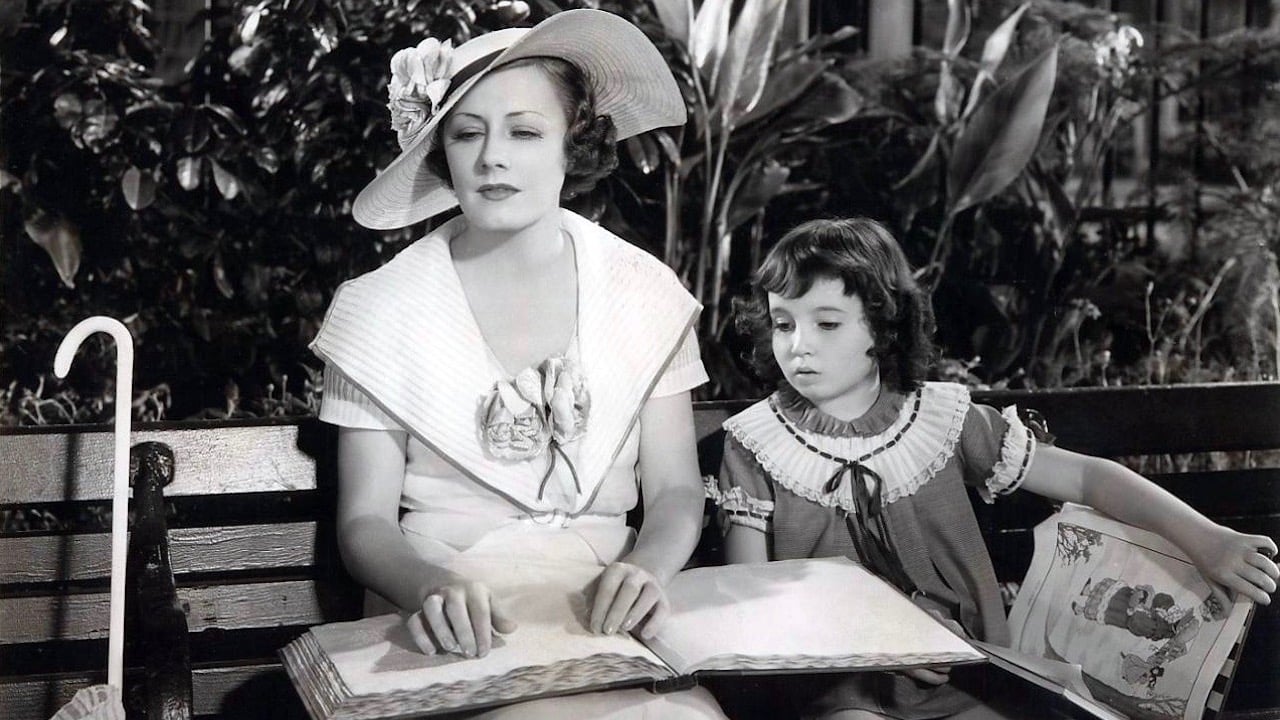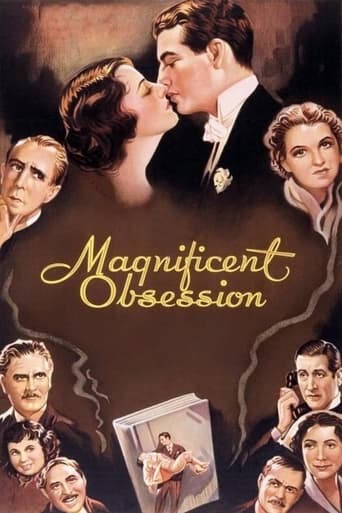



It was OK. I don't see why everyone loves it so much. It wasn't very smart or deep or well-directed.
View MoreFanciful, disturbing, and wildly original, it announces the arrival of a fresh, bold voice in American cinema.
View MoreOne of the best movies of the year! Incredible from the beginning to the end.
View MoreAn old-fashioned movie made with new-fashioned finesse.
View MoreI note that many prefer this version of the film, rather than the Rock Hudson/Jane Wyman version. I totally disagree. And what makes me so dismissive of this version is humor the first half of the script that is inappropriate to the story line, as well as clear flirting by Irene Dunne. Right after her husband dies, Dunne is flirting (in the car scene) with Robert Taylor...highly inappropriate. In terms of the attempted humor, take -- for example -- the drunken car scene with Taylor's compatriot falling into the sewer. This film is not about humor or flirting. It is about moral character and redemption. So why is Robert Taylor smiling so much throughout the movie, even though he is the cause of another man's death and the cause of a woman going blind? She finds surgery will not restore her sight (and he knows it), yet he is smiling like a lovesick fool on a date in the moonlight...a moonlight she can't see because of him.I make these criticisms even though I have often admired Miss Dunne's work in films. And while Robert Taylor is not one of my particular favorites, he was a fine actor and made some great films.Despite my criticism, I'm not saying you shouldn't watch this film. It's quite watchable, and an interesting contrast if you also watch the 1954 Sirk version, which takes things far more seriously and dramatically. And, in the second half of the film the inappropriate humor and the silliness of the flirting disappears and movie gets more serious, and is really gone quite nicely.So again, watch this film, but also consider watching the Hudson/Wyman version.
View MoreI am a fan of Irene Dunne and was looking forward to seeing this movie. Unfortunately it felt a little out of touch with the events, especially in the first half of the movie. After the initial shock of learning that her husband had suddenly died, the wife displayed little grief. In fact she seemed somewhat interested in a young man (Robert Taylor) she met when her car broke down. Of course, she didn't know that he had indirectly contributed to her late husband's death but she seemed a little too carefree for the situation. This movie is of some interested because it is the original version of the story. I have not seen the updated version yet so am interested in comparing the two movies.
View MoreThis movie is a prime example of what I call "dated." Many fine movies made in the 1930s and 40s are definitely NOT dated: Casablanca, The Big Sleep, Dodsworth, Mrs. Miniver, The Best Years of Our Lives. It doesn't matter that they were made 60 or 70 years ago, the people are events are fresh and powerful.Unfortunately, I can't say that about this movie. It tries very hard to be profound and moving. But it is just too contrived. I just can't believe the actions of the main characters are real. Irene Dunne and Robert Taylor do a good enough job acting. But the basic plot and dialog just don't make sense. They are too much aimed to appeal to the tastes and customs of an era and a level of sophistication now gone. I don't want to give away any spoilers so I'll not go into details. It did keep surprising me however, and is worth watching if you like movies that are slightly unrealistic romantic soap operas.henry
View MoreThe Sirk excellent remake has overshadowed Stahl's version nowadays.That's certainly unfair,because the latter was a pioneer of the melodrama who would peak with "leave her to heaven" ,ten years later.Stahl 's version,in stark black and white is certainly not as palatable as the 1953 movie and its gaudy technicolor.Randolph's character seems more important in Stahl's version.His theory is certainly moving:You've only got what you give and you should not expect any award.Merrick tries to apply this theory,first because he wants to seduce the wife of the philanthropist/doctor who indirectly died because of him,because he was an alcoholic playboy.He has not really understood what Randolph tried to explain to him.The scene with the hobo comes as a comic relief,which is terribly needed in such a dark yarn.When ,as leaving the poor man,Merrick thinks he's got some divine reward,he's completely mistaken.A Christian movie,"magnificent obsession" sure is,as Randolph,in his second scene ,mentions the Christ. After all,his theory is not that much far from that of James Stewart's guardian angel in "it's a wonderful life".Unlikelihoods are here there and everywhere,but it's the rules of melodrama.The story ,which includes death,blindness,moral and physical redemption,is not more far-fetched than westerns and thrillers plots.And life is so strange that it can turn sometimes into the most implausible melodrama;and like it or not,not necessarily with a happy end.
View More